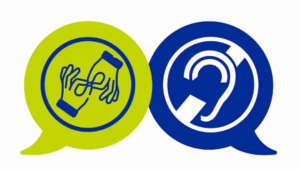Why your Close Ones Should Never Act as Professional Legal Interpreters — Especially for Personal Injury Cases
In the world of personal injury law, cases are often won—or lost—on the accuracy of words. Depositions, sworn statements, medical records, and courtroom testimony all hinge on clear, precise, and faithful communication between attorneys, clients, witnesses, and the court.
Yet, despite the high stakes, it is not uncommon for non-English-speaking clients to rely on friends or family members to interpret during critical moments—sometimes even in formal legal proceedings or private attorney–client conversations.
While this may seem like a harmless way to save money or make the client more comfortable, it is a dangerous practice that can lead to legal disaster, financial loss, and professional embarrassment. For injury lawyers, allowing this can open the door to malpractice risks, privilege breaches, and case-crippling mistakes.
This article explains why injury lawyers should always engage professional interpreters—and why using friends or family can potentially put both lawyer and client in jeopardy.
The Legal Liability for Attorneys and Clients
The legal system demands accuracy and confidentiality. Using a non-professional interpreter could introduce serious legal exposure:
- Breach of Attorney–Client Privilege: Friends and family are not usually bound by confidentiality agreements. They are not professional resources and are not covered by any professional liability insurance. Any information they repeat—whether intentionally or through casual conversation—can compromise the case.
- Misrepresentation of Facts: Even minor errors in the interpretation could change the legal meaning of a statement. A misinterpretation could inadvertently suggest an admission of fault or contradict earlier testimony if cross examination is conducted.
- Malpractice Risk: Courts and opposing counsel expect attorneys to take reasonable steps to ensure accurate communication. Relying on untrained interpreters could be seen as failing to protect the client’s rights.
Professional legal interpreters are trained to maintain absolute confidentiality and are often bound by legal and ethical codes—standards that friends and family simply do not meet and are not trained for.

Manipulation of Testimony and Statements
One of the most dangerous risks in injury cases is the alteration— intentional or not —of testimony. Friends or relatives acting as interpreters may:
- Omit damaging facts to “protect” the client.
- Add explanations or excuses not actually spoken by the client.
- Change tone or emphasis, making statements sound more emotional, less certain, or more confrontational.
Even if these changes are well-intentioned, they can create inconsistencies that opposing attorneys could use to question credibility. In cases where insurance companies are looking for reasons to deny or reduce payouts, such discrepancies can be devastating.
Unwanted or Misguided Advice
Injury lawyers know the importance of controlling the legal strategy and ensuring the client’s understanding of each decision. But when a friend or family member is interpreting, they may:
- Offer unsolicited legal advice—often inaccurate or misleading.
- Influence the client’s answers to align with their own beliefs or desired outcomes.
- “Explain” legal concepts in overly simplified or incorrect terms, leading to misunderstandings.
Professional interpreters know their role is not to advise, guide, or influence—only to faithfully and accurately convey the intended meaning of each party’s words.
Lack of Legal Terminology Knowledge
Legal interpreting is a specialized skill. Professional interpreters have deep knowledge of:
- Courtroom procedures and formal expressions.
- Legal terminology in both languages, including injury-specific terms like “comparative negligence,” “pain and suffering,” or “loss of consortium.”
- Precise word choice to avoid ambiguity in contracts, settlement agreements, or sworn statements.
Friends or relatives, even if fully bilingual, may not know these terms or may substitute approximate translations that could alter meaning. A single misinterpretation can derail settlement negotiations or damage a deposition.
Cultural and Contextual Missteps
We need to understand that language is not just words—it’s also culture and context. Professional interpreters are trained to:
- Recognize when cultural differences require clarification.
- Maintain the appropriate register (formal or informal tone) for the setting.
- Avoid expressions that could be misunderstood or deemed disrespectful.
An untrained interpreter may inadvertently use phrasing that appears rude or evasive in a legal context, damaging the client’s credibility.
Perception and Professionalism in Court
Cases that go far and beyond on a procedural basis—especially those before a jury—could be as much about perception as they are about facts. A professional interpreter communicates and guarantees that:
- The legal team values accuracy and fairness.
- The client’s rights are being fully protected.
- The process is being handled with seriousness and professionalism.
Using a friend or relative as an interpreter can suggest a lack of preparation or a casual approach to the case—something opposing counsel could easily exploit.
Additional Shortcomings of Non-Professional Interpreters
Beyond the major risks already explained, there are other common but overlooked issues when using friends or family:
- Emotional Involvement: Family members may become upset during sensitive testimony, affecting their ability to interpret accurately.
- Interruptions and Over-Talking: Untrained interpreters could speak out of turn, confusing court reporters and disrupting the record. This creates lengthier procedures and potentially additional costs.
- Memory Errors: Without note-taking skills, long answers may be shortened, omitting crucial details.
- Conflicts of Interest: Family members could have a stake in the case outcome and therefore, consciously or unconsciously, skewing the message.
- Stress and Fatigue: Legal interpreting is mentally taxing—untrained individuals may make more mistakes as proceedings go on.
- Overconfidence: Some bilingual friends assume interpreting is “just translating,” underestimating the skill required for accuracy under pressure.
- Non-Verbal Cues Mismanagement: Professional interpreters know when and how to convey tone, pauses, or emphasis; untrained interpreters often lose these important subtleties.
How Professional Legal Interpreters Protect Injury Cases
Professional interpreters are not just bilingual—they are specialized language professionals who bring:
- Accuracy: Every word, nuance, and meaning is preserved exactly as intended.
- Confidentiality: Bound by ethical and legal standards to protect attorney–client privilege. When contracting an agency like Global Arena, the service is also protected by the agency’s professional liability insurance.
- Neutrality: No personal bias, no unwanted advice, no interference.
- Efficiency: Skilled in legal settings, ensuring smooth communication without delays.
- Cultural Competence: Ability to navigate cultural differences that could affect understanding.
By using a professional, injury lawyers protect not only their clients but also themselves from unnecessary risks.
For Injury Lawyers, using a professional interpreter should be a Non-Negotiable
In personal injury law, there is no room for error when it comes to communication. Friends and family may want to help, and Lawyers can see it as a way to expedite the information gathering process. However, the involvement of untrained interpreters can unintentionally cause irreversible harm to the case.
From breached privilege to altered testimony, from conflicts of interest to perception issues, we have given above good explanations as to why the risks are high. Professional legal interpreters ensure that:
- The client fully understands every step of the process.
- The attorney receives the correct and unbiased information to generate the case strategy and defend their client.
- The attorney’s advice is conveyed exactly as intended.
- Courtroom and deposition communications meet legal and ethical standards.
For personal injury lawyers, insisting on a trained, certified legal interpreter is not a luxury—it’s a necessity. It protects the client, the case, and the attorney’s professional reputation.
If the stakes are your client’s financial future, physical recovery, and legal rights, don’t gamble on an untrained interpreter. Always work with a professional.




